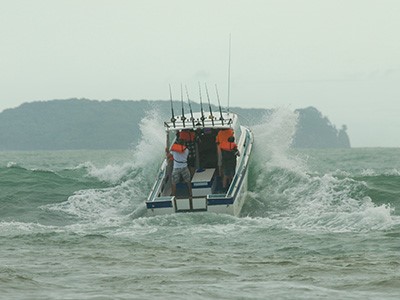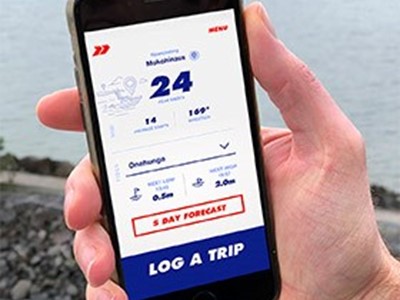What is a Trip Report?
A trip report (TR) is a message that you pass to Coastguard Radio to advise us of your intended boating activity. We record this information against your callsign and use it for search and rescue purposes if you’re reported overdue. It’s worth noting that if you forget to close your trip report it’s not the end of the world, but we highly recommend getting in the habit of closing your trip report when you arrive back safely from your day out.
FAQs
To log a report, tune your marine VHF radio to your local Coastguard Radio station or call us on *500 from your mobile.
Simply tell us:
- The name and VHF Call Sign of your boat
- Point of departure
- Destination, route and estimated time of arrival (ETA)
- Number of people on board (POB).
These details will be recorded against your callsign. Trip reports aren’t followed up unless we are notified that you are overdue, so make sure someone knows your plans and will raise the alarm if needed. If you are reported overdue, this simple information can narrow a search area considerably, and save time searching for you.
Before you head out: “Coastguard Radio (up to 3 times), this is Seabird ZMQ8088 (up to 3 times). Over.”
Coastguard will reply to acknowledge your transmission: “Seabird ZMQ8088, this is Coastguard Radio, go ahead.”
Let us know your plans: “Coastguard Radio, this is Seabird, departing from Opua Marina, destination Cape Brett via Robertson Island for some fishing. ETA Robertson Island 1800 hours this evening, 4 POB. Over.”
Coastguard will confirm: “Thanks Seabird, that’s all received. Coastguard Radio Out.”
Remember it’s always good practice to close your TR when you arrive safely at your destination.
You can now use the Coastguard app to log your trip report – your boat details and emergency contact info is saved in the app so it’s quick and easy to do.
Check out the video:
Due to the risk involved, Bar Crossing reports are handled differently. We record the same information but will follow up if it isn’t closed after a defined time period specific to each bar (usually 15-30 minutes) to ensure you make it safely over the bar.
It’s vital you close a bar crossing reports, otherwise Coastguard will launch a search-and-rescue response.
Find out more about Bar Crossing reports.
You sure do! If you’re using a VHF for anything but an emergency transmission you need your VHF Radio Operators Certificate, and since all radio transmissions have to be individually identifiable you also need a callsign. The VHF certificate is easy to do online or in the classroom, and you can get a callsign online in a couple of minutes.
Boatie's Best Mate.
Get a Coastguard membership today for peace of mind when you’re out boating.




